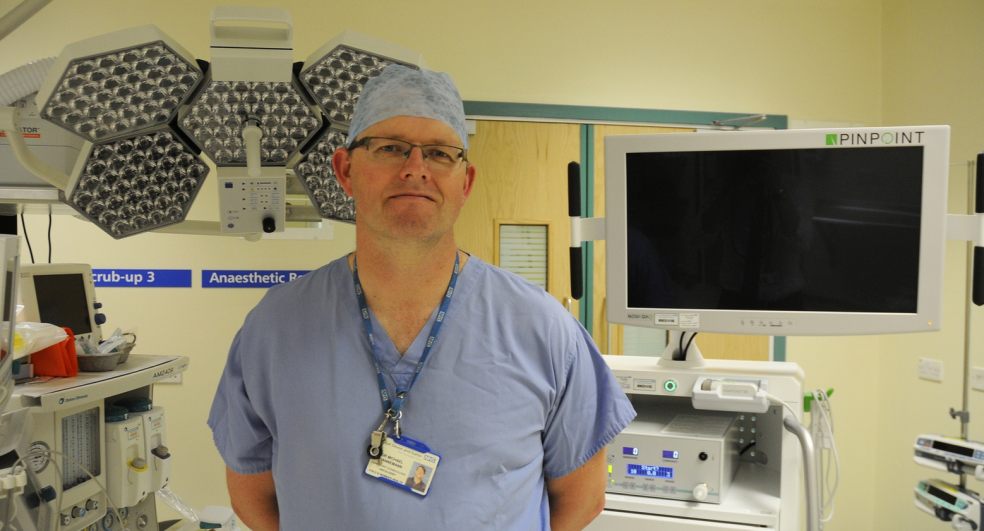
FORCE funds new equipment to celebrate 30th anniversary
Women across Devon are set to benefit as FORCE Cancer Charity celebrates its 30th anniversary this year with a major equipment purchase.
To mark this milestone, the Exeter-based charity is funding a new advance in the treatment of women with cancer at the Royal Devon and Exeter Hospital.
FORCE has provided nearly £100,000 to buy a new surgical device, only available in the UK since 2015.
It is designed to save lives, reduce unnecessary treatment and cut costs to the hospital.
The equipment, called PINPOINT, has been installed in one of the hospital’s operating theatres and is designed to help surgeons identify more accurately the extent of uterine or cervical cancer during keyhole operations.
It is much more precise than a scan, so the technique can better inform women and their doctors of the true stage of the cancer and help tailor further treatment to their individual needs.
This means many patients can be reassured that their cancer is less advanced than thought and treatment needn’t be as aggressive.
Equally, in a small number where the disease is found to be more advanced, extra treatment can be offered that previously would not have been routinely given.
Overall, this should translate into better outcomes with fewer overall side effects from treatment.
John Renninson, Clinical Director of Cancer Services at the RD&E and a FORCE trustee, said: “This is a game changing step forward for our service and the patients that we treat.”
FORCE has invested £93,000 in the technology using money from a legacy made to the charity and projected profits from November’s Classic Galore! concert.
FORCE believes that anyone affected by cancer deserves the best possible treatment and professional support face-to-face and close to home.
Since it was founded in 1987, the charity has spent more than £3 million on cancer research and equipment in Devon and a further £5.4million on supporting patients and their families.
FORCE Chief Executive Meriel Fishwick said: “FORCE is really pleased to be backing this very important step forward in the treatment of gynaecological cancers. This continues our long history of funding equipment to support innovative cancer treatments.”
Pinpoint, likely to be used in around 80 cases each year, is supplied by Berkshire-based Elemental Healthcare, exclusive provider of the equipment for the UK.
HOW PINPOINT WORKS
The Pinpoint system works by using a glowing fluorescent dye, injected during keyhole surgery to trace the lymphatic channels from a tumour to the nearest lymph gland.
The dye can clearly be seen using a Pinpoint camera that relays detailed images to a high resolution screen.
The so-called “sentinel” lymph gland can be easily identified and safely removed for laboratory analysis.
The new information from that analysis can then guide further treatment decisions for the patient.
The introduction of Pinpoint technology is likely to provide cost savings by reducing radiotherapy and chemotherapy treatments for some patients.
Gynaecology-oncology consultant surgeon Michael Hannemann is the RD&E’s Pinpoint lead.
"Thanks to FORCE’s support, women in Devon will be amongst the first in the country to benefit from the technology, which will also form the basis for future research on its potential usefulness in ovarian cancer,” he said.














